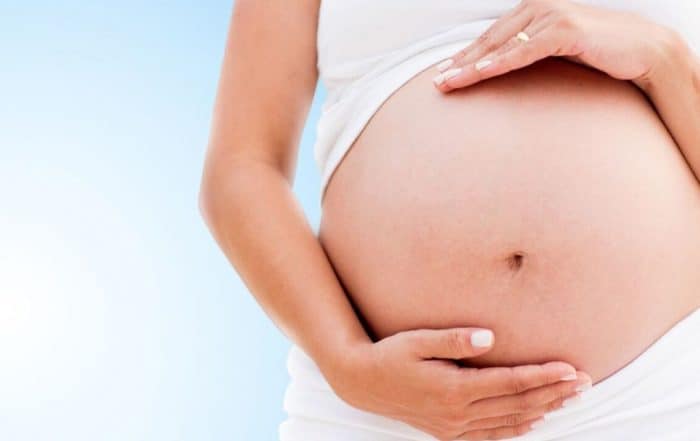Dr. Judy Van de Water, Ph.D., explores the role of gestational factors in the development of autism. She explains how maternal immune activation, antibody patterns, and immune markers play significant roles in neurodevelopment and may contribute to the etiology and phenotypic variation of autism. The speaker presents various investigations and critical findings. She asserts the need for further research on the interaction of these gestational influences with other genetic and environmental factors. Van de Water provides thanks and acknowledgments before the Q&A.
Take the knowledge quiz for this presentation HERE
In this webinar:
1:02 – Potential etiologies of autism
3:03 – Maternal Immune Activation Model
5:30 – Research sample characteristics
7:40 – Study: Maternal prenatal cytokines
11:05 – Study: Newborn immune markers
15:06 – Study: Effect of sex on newborn immune system profile
17:30 – Maternal autoantibody related autism subtype (MARA)
19:25 – Target proteins and brain development
20:46 – Study: MAR antibody test
24:26 – Study: Early markers of autism – prenatal validation
27:40 – MAR antibody patterns phenotypes
29:30 – Summary of clinical findings
31:03 – Study: Translational animal model
34:15 – Rodent model findings
38:40 – Conclusions
41:55 – Q & A
Introduction
Van de Water lists potential etiologies for autism, including genetic predisposition, immune dysregulation, and infections during gestation. She explains that maternal infection, specifically inflammation resulting from infection, has been implicated as a risk factor for autism and schizophrenia (1:02). The speaker introduces the Maternal Immune Activation Model, which proposes that when an inflammatory event occurs during pregnancy, the mother’s immune response may be more active, leading to the transfer of different factors to the fetal compartment (e.g., cytokines) Such immune dysregulation can increase the risk of altered fetal neurodevelopment (3:03). Van de Water notes that genetic susceptibility, gestational timing, intensity of immune response and other postnatal events all play a role in autism etiology (5:00).
Inflammatory response during pregnancy
The presenter describes recent investigations into risk factors for autism and developmental delays (5:30). She summarizes sample collection and research methods for a study that assessed maternal prenatal cytokines in mothers of autistic children with intellectual delays (ID), mothers of autistic children without ID, and mothers of children with ID but not autism (7:40). Researchers found that mothers of autistic children with ID had the highest levels of inflammatory cytokines and chemokines compared to all other groups. This suggests, Van de Water continues, a lack of selective immune regulation in these women and a potential link between immune activation and ID in autistic individuals (10:08). A second study found that newborns diagnosed with autism and delayed development (DD) had lower levels of specific cytokines and chemokines at birth compared to those with typical development or DD without autism (11:05). Van de Water discusses particular chemokines and cytokines that may impact autism etiology (13:30).
The speaker details another study investigating the effect of offspring sex on immune profiles at birth (15:06). Researchers found that neonatal immune signatures differ by sex regardless of the neurodevelopmental outcome. However, control males had higher levels of certain immune markers than females, and autistic females with DD had higher levels than males with autism (17:20). The speaker asserts that such sex-specific differences in immune markers may contribute to the variability in autism phenotypes, highlighting the need for individualized treatments (16:15).
Maternal autoantibody-related autism
Van de Water discusses the maternal autoantibody-related autism subtype (MAR) (around 20% of cases), where mothers have antibodies that are reactive against proteins in the developing brain (17:30). She explains that during fetal development, the mother’s antibodies cross the placenta to provide immune protection for the fetus. In the case of MAR, some antibodies can bind to pre-neuronal cells, which leads to different brain development. The speaker presents a MAR antibody test designed by her team (20:46). Initial findings revealed antibody patterns specific to autism in 20% of the sample and that mothers with these antibodies were 31 times more likely to have a child with autism (22:30).
The presenter outlines a second study that validated the MAR antibody test with prenatal data (24:26). They also found that specific MAR antibody patterns were associated with phenotypic differences in autism. Van de Water therefore asserts that these patterns could not only serve as autism biomarkers but could also inform more specific and individualized interventions (27:40). She summarizes clinical findings from the previous studies and notes that as autism incidence increases, they see an increase in MAR as well (29:30).
Translational animal models
The speaker details translational animal models and why they are essential in preclinical trials. She explains how they used animal models to determine whether MAR autoantibodies are related to etiology or are just biomarkers (31:03). Animal studies generally include measures of behavior, brain scans, and cell cultures (32:15). Van de Water outlines an antibody study that found both mice and rats showed altered social behavior, self-grooming, and increased repetitive behaviors and produced the same antibodies found in humans with autism (34:15). These data, she continues, also exhibit differences in brain volume, with males and females displaying distinct patterns of brain development (37:30).
Van de Water summarizes the main conclusions from the animal models. She highlights that gestational immune dysregulation may contribute to altered neurodevelopment and that antibodies localize to developing animals’ brains. The speaker emphasizes that we see enlarged brains in humans, mice, monkeys, and rats with gestational exposure to MAR autoantibodies and underscores the structural effects of MAR antibodies and the usefulness of animal models (38:40). She provides acknowledgments and thanks to collaborators before the Q & A (41:55).
The speaker:

Take the knowledge quiz
Can’t see the quiz below? Take it online HERE
New research points to alterations in BPA excretion pathway in children with autism, ADHD
Children with autism spectrum disorders (ASD) may have a reduced ability to detoxify the chemical bisphenol A (BPA), according to new research. BPA is an industrial “plasticizer” used in plastic water bottles, food
Animal study adds to evidence of link between pyrethroids and autism
A new animal study adds to evidence that prenatal exposure to common insecticides called pyrethroids may increase the likelihood of a child developing autism or another neurodevelopmental disorder. Melissa Curtis and colleagues,
Prenatal exposure to cannabis may increase likelihood of autism
Cannabis use during pregnancy may alter placental and fetal DNA methylation (the process of turning genes “on” and “off”) in ways that increase the likelihood of autism spectrum disorder (ASD) or
Gestational Influences and Autism
Dr. Judy Van de Water, Ph.D., explores the role of gestational factors in the development of autism. She explains how maternal immune activation, antibody patterns, and immune markers play significant roles in neurodevelopment
Could treating moms’ periodontal disease lower odds of autism?
Mothers who receive periodontal treatment during pregnancy may reduce the odds of their children developing autism spectrum disorders (ASD), according to a new study. Carl Bose and colleagues collected data on 306
Two studies indicate that autoantibodies in maternal blood may provide diagnostic clues in autism
Certain patterns of proteins in the blood of pregnant women may help to predict one type of autism spectrum disorder (ASD) in children, according to two new studies. Both studies focused







